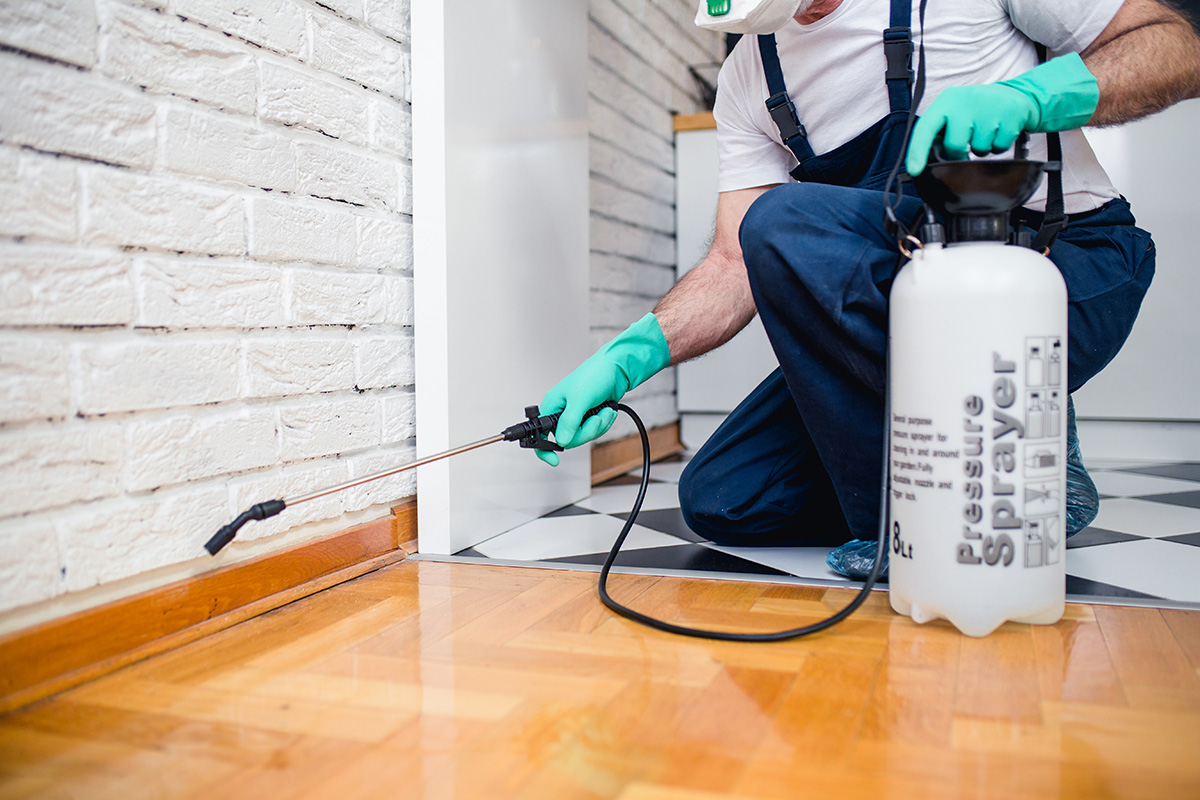A1 Residential Pest Control Portland OR Bed Bugs - Safeguard Your Home
A1 Residential Pest Control Portland OR Bed Bugs - Safeguard Your Home
Blog Article
Reliable Parasite Control Solutions: A Comprehensive Appearance at Elimination Techniques and Avoidance Procedures
In the realm of pest control services, the successful management of problems requires a precise strategy that combines numerous methods and steps for both removal and avoidance. From Integrated Insect Administration (IPM) techniques that prioritize lasting options to chemical elimination strategies designed for targeted elimination, the arsenal against bugs is large and multifaceted.

Integrated Insect Administration (IPM) Approaches
Integrated Insect Management (IPM) Methods encompass an extensive strategy to pest control that concentrates on surveillance, prevention, and control methods to successfully take care of bug populations. By incorporating various methods, IPM intends to decrease the influence of bugs while also minimizing the dependence on chemical pesticides. Avoidance lies at the core of IPM, stressing techniques like proper hygiene, maintenance of hygiene, and securing entrance points to discourage pests from infesting buildings. Surveillance plays a crucial duty in IPM by frequently recognizing and examining parasite levels to figure out the suitable treatment thresholds. Control approaches in IPM prioritize the use of physical, biological, and social approaches prior to turning to chemical treatments as a last option. These techniques consist of presenting all-natural predators, habitat alteration, and utilizing capturing devices to keep pest populaces in check. Generally, IPM fosters a eco mindful and lasting approach to pest management, advertising long-term solutions that protect both human health and the community.
Chemical Extermination Methods
Chemical extermination techniques are commonly utilized in bug control solutions to properly get rid of bug populaces that present a risk to human health and residential or commercial property. These strategies include using different chemical substances specifically made to target and eliminate parasites such as insects, rats, and other unwanted animals. The application of pesticides, pesticides, rodenticides, and other chemical representatives is thoroughly managed to guarantee maximum efficiency while reducing threats to humans, pet dogs, and the environment.
One of the key advantages of chemical extermination methods is their capacity to provide fast and targeted results, making them especially valuable in cases of serious problems or urgent bug control needs - a1 pest control in portland oregon bed bugs. Nonetheless, it is important to stress the relevance of correct handling, application, and disposal of these chemical products to avoid unplanned injury
Furthermore, integrated parasite management (IPM) strategies usually combine chemical extermination methods with other methods such as hygiene, habitat adjustment, and organic controls to develop a extensive and lasting pest control approach. By integrating chemical elimination methods carefully within an IPM structure, parasite control services can effectively take care of bug populations while reducing potential risks to human health and wellness and the atmosphere.
Organic Bug Control Approaches
Using all-natural killers and parasites to handle insect populations is a lasting technique referred to as biological parasite control. This approach harnesses the all-natural systems of the ecological community to check these guys out control insect populaces without counting on artificial chemicals. One usual biological control method entails introducing all-natural adversaries of the target bug types, such as ladybugs for aphid control or nematodes for termite infestations. These all-natural predators prey on the insects, aiding to maintain their populations in check.
An additional efficient organic control technique is using microbial insecticides. These are normally occurring bacteria, such as microorganisms, fungi, and infections, that especially target and contaminate certain bug varieties. By utilizing these microbial agents, pest populations can be effectively decreased without causing or harming helpful microorganisms harm to the environment.
Physical Insect Prevention Procedures
Carrying out physical insect prevention actions involves utilizing barriers and structural adjustments to prevent bugs from going into or infesting a residential or commercial property. Setting up door sweeps, screens on home windows, and sealing splits in the foundation can aid avoid parasites like bugs and rats from gaining gain access to indoors.
One more physical prevention step is the usage of obstacles like fence to maintain bigger bugs such as raccoons or deer away from the home. By implementing these physical bug prevention measures, property proprietors can substantially minimize the threat of parasite problems and the damages they can create.
Expert Bug Inspection Procedures
Conducting complete and systematic parasite assessments is an essential aspect of specialist parasite management procedures. Expert pest inspectors are trained to diligently examine buildings for indicators of infestations, identifying pest types, entrance points, and favorable conditions.

Conclusion
To conclude, reliable pest control services utilize a selection of strategies, including Integrated Parasite Management techniques, chemical elimination approaches, organic controls, and physical prevention steps. Expert parasite inspection procedures play a crucial function in identifying and attending to pest issues in a timely manner. By applying a combination of these strategies, property owners can successfully manage and stop insect invasions.
From Integrated check this site out Insect Administration (IPM) methods that prioritize sustainable services to chemical elimination methods created address for targeted removal, the toolbox against insects is multifaceted and large.Integrated Insect Administration (IPM) Techniques encompass an extensive approach to pest control that focuses on prevention, monitoring, and control techniques to efficiently take care of bug populations.Chemical extermination strategies are generally utilized in bug control solutions to successfully remove pest populaces that present a risk to human health and property.Utilizing all-natural killers and bloodsuckers to manage bug populations is a sustainable method recognized as biological pest control.In final thought, effective parasite control services use a range of techniques, including Integrated Bug Monitoring methods, chemical extermination methods, biological controls, and physical avoidance actions.
Report this page